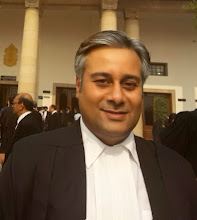By Vivek Nasa
FOR MORE INFORMATION
CONTACT
Vivek
Nasa & Associates
Chamber no 11, Second Floor, Lawyers Chambers Block A, Gurgaon Civil Court,
National Highway 8, Gurugram, Haryana 122001, India
Get Directions
Phone: +919811896536
Website: https://www.viveknasa.com
Email: contact@viveknasa.com
Facebook Profile: Visit
Google Maps: Visit
Youtube Channel: Visit
